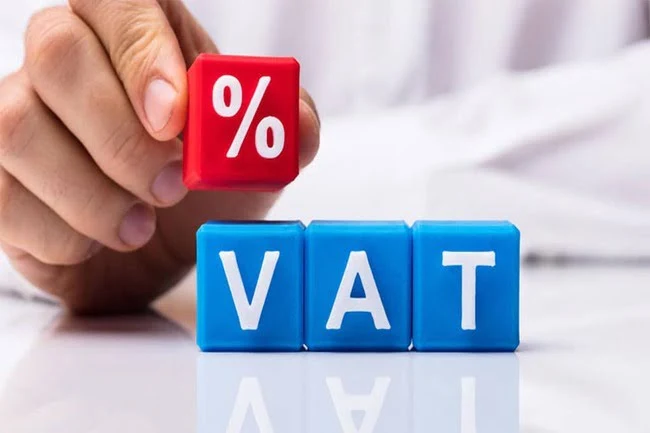- Saint Kitts and Nevis Tax System in 2025
- Saint Kitts and Nevis Tax System Overview | Tax Benefits for Investors in Saint Kitts and Nevis
- Property Tax
- How to pay tax in St. Kitts and Nevis
- You can pay your taxes in Saint Kitts and Nevis, including property tax, corporate tax, VAT, and other government taxes, either online or in person. Online payments are made through the IRD’s e‑services portal, called SMARTS / My Government Portal, or the “Quick Pay” option using a credit/debit card or bank transfer. For offline payments, you can visit the IRD office with your tax bill or demand notice and pay by cash, cheque, or bank draft. After payment, always keep your receipt as proof.
- Value Added Tax (VAT)
- Social Security Contributions
- Corporate taxes
- Final Thought: Taxation for Investors in Saint Kitts and Nevis
Saint Kitts and Nevis is a small, peaceful country in the Caribbean, made up of two islands. It is famous for its beautiful beaches, tropical climate, and friendly people. The main ways to do business here are tourism, real estate, financial services, and agriculture. Investors can build hotels or resorts, buy approved real estate, or start small businesses to earn money. Saint Kitts and Nevis is known for being tax-friendly, especially for investors and business owners. The country does not have personal income tax, which means residents do not pay tax on the money they earn. There is no inheritance tax or wealth tax either. Businesses may pay some corporate tax, but many sectors enjoy low tax rates and incentives to encourage investment.

The country also offers a Citizenship by Investment (CBI) program, which allows investors to obtain citizenship quickly. By investing in real estate or contributing to a government fund or public benefit option, investors and their families can get a Saint Kitts and Nevis passport. This passport allows travel freedom to over 154 countries, including Europe, the UK, Singapore, and Hong Kong. Families can also keep their original nationality, making it easier to travel, work, and do business around the world.
Saint Kitts and Nevis Tax System Overview | Tax Benefits for Investors in Saint Kitts and Nevis
The Inland Revenue Department (IRD) of St. Kitts and Nevis announces that the Value Added Tax (VAT) rate will return to 17% starting July 1, 2025. This follows the end of the temporary lower rate of 13%. The reduced VAT rate was introduced as part of the government’s plan to support the economy and help businesses and consumers. The IRD notes that this temporary reduction had a positive effect on business activity and consumer confidence across the country.
There are also no foreign exchange controls, which enables free movement of capital and international transactions. If you’re VAT registered, you must file your VAT return by the 15th day of the month following the reporting period.
St. Kitts and Nevis not impose any personal income tax, nor are dividends, royalties, or interest subject to taxation to the local resident. However, non-residents are required to pay a 15% withholding tax on applicable income. Additionally, all employees and employers contribute to the Social Security system.
Who is Resident in Saint Kitts and Nevis ?
A resident is generally someone who lives in Saint Kitts and Nevis and is present in the country for tax or legal purposes. Residency is often determined by physical presence, usually spending a minimum number of days in the country (for tax purposes, it can be 183 days( half of the year approximately ) in a year, but this depends on context. Residents are subject to local tax rules on income generated in the country, though Saint Kitts and Nevis does not levy personal income tax.
Who is Non-Resident Employees ?
Non-residents (people who do not live in Saint Kitts and Nevis) generally do not contribute to the Social Security system, unless they are formally employed in Saint Kitts and Nevis. Instead, non-residents are subject to a 15% withholding tax on Saint Kitts and Nevis sourced income such as dividends, royalties, and some other service fees.

Who is a CBI citizen? Does a citizen who obtains citizenship through the CBI program also consider as a regular resident in Saint Kitts and Nevis?
Saint Kitts and Nevis Citizenship by Investment (CBI) program does not require full-time residency. To maintain citizenship, applicants need to be physically present in the country for only 5 days within the first 5 years. If you obtain citizenship through the Citizenship by Investment (CBI) program, you are not automatically a tax or Social Security resident.
Citizenship only gives you legal nationality; unless you physically live or work in Saint Kitts and Nevis, you are treated as a non-resident for tax and Social Security purposes. Most CBI applicants spend only the minimum five days in five years required to maintain citizenship.
Please note that if you obtaining CBI citizenship alone does not make you a tax resident. You are legally a citizen, but tax residency depends on physical presence in the country with valid local address.
Property Tax
The Property Valuation Section of Saint Kitts and Nevis is responsible for assessing property values under the Property Tax Act 2006. Led by the Chief Valuation Officer, the team includes field valuation officers, mapping officers, and administrative staff. Field officers visit construction sites and completed properties to measure, photograph, and record details, ensuring valuations reflect current market values. Mapping officers update property maps in the GIS system, while administrative staff assist property owners with inquiries, issue Certificates of Value (COV), and manage property records. This structured process ensures a fair, transparent, and accurate property tax system for all residents. Below table shows the tax rates according to the property in Saint Kitts and Nevis.
| Description | Property tax rates on St. Kitts | Property tax rates Nevis |
|---|---|---|
| Accommodation | Building : 0.002% Land : 0.002% | Building : 0.003% Land : 0.002% |
| Agriculture | Building : 0.000% Land : 0.000% | Building : 0.000% Land : 0.001% |
| Commercial | Building : 0.003% Land : 0.003% | Building : 0.003% Land : 0.0002% |
| Institutional | Building : 0.000% Land : 0.000% | Building : 0.002% Land : 0.015% |
| Residential | Building : 0.002% Land : 0.002% | Building : 0.00156% Land : 0.0075% |
How does the IRD determine property value and calculate property tax? The Inland Revenue Department (IRD) determines the value of a property using recent sales of similar properties in the area. This is called the market value. If a property is unique and no similar sales exist, the IRD uses the replacement cost method, which calculates how much it would cost to rebuild the property minus any depreciation. Once the valuation is done, the IRD issues a Certificate of Value (COV) showing the property details and the value for tax purposes. please note that agricultural, educational, and institutional properties can only be exempt from property tax if they are certified by the Director of Agriculture or meet the requirements under the Education Act. An individual cannot declare their property tax-exempt on their own.
Once the value is determined, the property tax is calculated by applying the tax rate to this value. For example, residential properties on St. Kitts are taxed at 0.2% of the market value, while commercial properties may have a higher rate. The IRD issues a Certificate of Value (COV) showing the property details, its assessed value, and the tax owed. Property values are updated periodically, and owners receive a new COV if the value changes.



if you are building a new home, you can get a one-year exemption from paying property tax starting from the date your house is completed. This tax relief is offered by the Inland Revenue Department and applies only to newly constructed residential properties.
How to pay tax in St. Kitts and Nevis
You can pay your taxes in Saint Kitts and Nevis, including property tax, corporate tax, VAT, and other government taxes, either online or in person. Online payments are made through the IRD’s e‑services portal, called SMARTS / My Government Portal, or the “Quick Pay” option using a credit/debit card or bank transfer. For offline payments, you can visit the IRD office with your tax bill or demand notice and pay by cash, cheque, or bank draft. After payment, always keep your receipt as proof.
Value Added Tax (VAT)
Value Added Tax (VAT) is a tax applied to most goods and services in Saint Kitts and Nevis. The standard VAT rate is 17%, which was reinstated on July 1, 2025 after a temporary reduction to 13%. Certain essential items, like basic food and medicines, may be exempt or zero-rated. Businesses registered for VAT must charge VAT on their sales, collect it from customers, and submit VAT returns and payments to the Inland Revenue Department (IRD) according to the prescribed schedule, usually monthly. VAT can be paid online via the IRD’s SMARTS / My Government Portal or in person at the IRD office.
In Saint Kitts and Nevis, businesses with annual sales above the VAT threshold must register for VAT with the Inland Revenue Department (IRD). If a business fails to register or pay VAT on time, penalties and interest may be applied. For consumers, VAT is included in the price of most goods and services, meaning they pay the tax indirectly whenever they make a purchase.

Social Security Contributions
In Saint Kitts and Nevis, both employees and employers contribute to the national social‑security system. For employees aged 16‑62, 5% of their wages is deducted. Employers pay 5% of the employee’s wages, plus an extra 1% for employment‑injury coverage. The contributions are calculated up to a maximum monthly earnings ceiling of XCD 6,500.
Corporate taxes
In Saint Kitts and Nevis, companies are required to pay corporate income tax on their profits. The standard corporate tax rate is 33%, which applies to both resident and non-resident companies that earn income in the country. However, businesses registered under certain special investment programs or tax incentives may qualify for reduced rates or tax holidays. Companies must file annual tax returns with the Inland Revenue Department (IRD) and can pay their taxes online through the SMARTS / My Government Portal or in person at the IRD office.
Final Thought: Taxation for Investors in Saint Kitts and Nevis
Saint Kitts and Nevis offers one of the most investor-friendly tax systems in the Caribbean. With no personal income tax, no inheritance or capital gains tax, and attractive corporate incentives, investors can enjoy a stable and low-tax environment. The country’s transparent tax structure, combined with the ability to manage payments easily through the SMARTS / My Government Portal, makes it convenient for both individuals and businesses. Whether you invest in real estate, tourism, or other sectors, Saint Kitts and Nevis provides a safe, tax-efficient, and welcoming environment for global investors.
Investors, including those participating in the Citizenship by Investment (CBI) program, enjoy a very favorable tax environment in Saint Kitts and Nevis :
Because Saint Kitts and Nevis allows dual citizenship, you can keep your original passport while enjoying the benefits of the Saint Kitts and Nevis passport including visa-free travel to numerous countries and a favorable tax regime.



